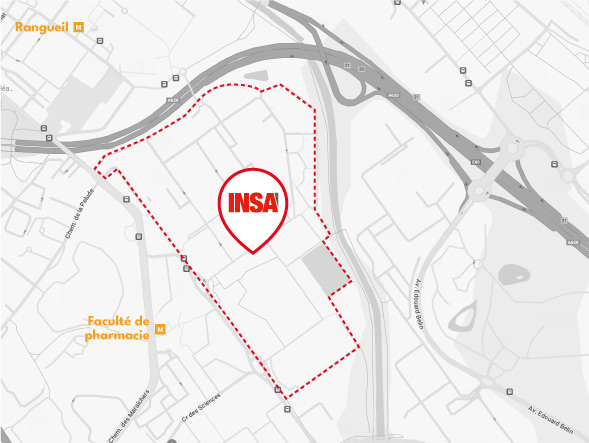Systems and Synthetic Biology for biotechnologies
Description
Objectifs
At the end of this module, the student will have understood and be able to explain (main concepts):
- how Systems Biology is changing the way biological systems are studied by allowing us to examine the cell and organism as a whole, especially Systems Biotechnology that allows optimal design and development of upstream to downstream bioprocesses by taking a systems-approach (with Escherichia coli as the main bacterial producer studied), and Systems Medicine that considers diseases as `perturbations of networks¿, and transforms the way drugs are developed by targeting multiple components of networks and pathways perturbed in diseases ;
- why Synthetic Biology an emerging field is located at the intersection of life science and engineering and is the application of the principles of engineering to the construction of life with desired properties in a rational and systematic way ; - what are the wide objectives of synthetic biology and their application for biomedicine, the cheaper synthesis of biopharmaceuticals, sustainable chemical synthesis by efficient biotransformation, environment and energy
The student will be able to:
- consider a biological question by applying a systems biology approach and study the mechanisms underlying complex biological processes as integrated systems of many interacting components. Systems biology involves (1) collection of large sets of experimental data, (2) proposal of mathematical models that might account for at least some significant aspects of this data set, (3) accurate computer solution of the mathematical equations to obtain numerical predictions, and (4) assessment of the quality of the model by comparing numerical simulations with the experimental data. Thus the student will acquire skills in network biology and genetic engineering, but also in mathematics (statistics, modelling), computer sciences and `omics¿ technologies allowing acquisition of large-scale biological data.
- conceive of and purpose a synthetic biology approach to introduce novel functionality into engineered organisms for production purposes or for building new materials. The student should be able to develop the most appropriate strategy and choose the adapted technical methods to reach the goal of engineered biological systems with optimized biosynthetic pathways and develop efficient routes for producing pharmacologically active compounds, industrially important bulk chemicals, and liquid fuels for transportation
Pré-requis
I4GBBM10; I4GBBM20; I4GBBM30; I4GBBM60; I4GBBC60; I4GBBC70; I4GBBC20.
Évaluation
L’évaluation des acquis d’apprentissage est réalisée en continu tout le long du semestre. En fonction des enseignements, elle peut prendre différentes formes : examen écrit, oral, compte-rendu, rapport écrit, évaluation par les pairs…
En bref
Crédits ECTS : 12.0
Nombre d’heures : 110.0

INSA Toulouse
135 avenue de Rangueil
31077 Toulouse cedex 4
Tél : 05 61 55 95 13
Fax : 05 61 55 95 00

Dans un souci d'alléger le texte et sans aucune discrimination de genre, l'emploi du genre masculin est utilisé à titre épicène.











